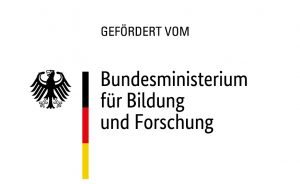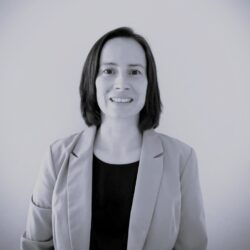Over the last decade, digital platforms have become important instruments for the joint development of ideas and places for the exchange of political opinions. However, considerable human and financial resources are needed to moderate and evaluate the many contributions.
Therefore, the aim of KOSMO is to develop and test an AI-supported assistance system that supports moderators and organizers in ensuring the quality of discussions and the synthesis of online discussions. This should make the discussions more attractive for participants as well as cheaper and easier to evaluate for providers. Thus, KOSMO enables the implementation of online discussions and online participation processes on a broad scale. Using the latest machine learning technologies and gamification approaches, KOSMO is a prototype for a system that proactively supports moderators in the execution of their tasks and thus enables administrations, political institutions, non-governmental organizations (NGOs), foundations and online media in particular to conduct cost-effective but high-quality online discussions and participation processes.
From a scientific perspective KOSMO pursues three goals:
- The optimization of algorithms for the automated detection of low and high quality Contributions to discussions in the German language.
- The integration of the algorithms in a prototype of an assistance system that proactively supports moderators* in their tasks.
- The research will provide in-depth answers to the research questions of how online discussions can be improved by assistance systems for semi-automated moderation and synthesis, how these systems are perceived and evaluated by providers and participants of online discussions, and how participation processes can contribute to strengthening democracy by using the systems.
The project is conducted in cooperation with Liquid Democracy e.V. (LIQD), the Institute for Participatory Design / Hörster & Rohr GbR (IPG) and the Research Group Deliberative Discussions in the Social Web (DEDIS) of the Heinrich-Heine-University Düsseldorf.
The project is funded by the German Federal Ministry of Education and Research for 3 years with about 370.000 €.

Contact
Prof. Dr. Marc Ziegele (Speaker)
Board, Communication Studies, DIID-Team

Marc Ziegele has been Professor of Communication and Media Studies at HHU-Düsseldorf since February 2024. He previously held the Junior Professorship for Communication and Media Studies with a focus on “Political Online Communication”. At the same time, he is head of the junior research group “Deliberative Discussions on the Social Web” funded by the Ministry of Culture and Science of the State of North Rhine-Westphalia. Previously, he was a research assistant at the Institute for Journalism at Johannes Gutenberg University Mainz and studied media economics at the same institute. His research focuses on participation and discussions of citizens on the Internet. In the junior research group based at DIID, he is investigating measures to improve the quality and impact of users’ public discussions about political media topics – so-called online public-political connection communication.
It also researches the causes and consequences of media trust as well as various aspects of citizens’ social web use at the interface of communication science and psychology.
Marc Ziegele was elected speaker of the Institute by the DIID General Assembly in December 2023.
Projects
Contact
Dr. Katharina Gerl
Political Science

Dr. Katharina Gerl has been a research assistant at DIID at HHU-Düsseldorf since 2016. She studied Political Science (B.A.) at the University of Bremen and Political Communication (M.A.) at HHU-Düsseldorf. For her dissertation at the Chair of Political Science II at Heinrich Heine University, she studied the impact of digital media on political parties as organizations.
Her research interests lie in the areas of effects and acceptance of digital democratic innovations in politics and administration as well as of artificial intelligence for political opinion-forming and decision-making.
Projects
Contact
Anke Stoll
Alumni, Communication Studies

From July 2018 to March 2023, Anke Stoll was a research assistant and PhD student at HHU-Düsseldorf, where she was affiliated with the junior research group “DEDIS – Deliberative Discussions on the Social Web” and the BMBF-funded research project “KOSMO – AI-supported Collective Social Moderation”. She studied communication and media sciences at the universities of Münster, Zurich and Leipzig. For her dissertation, she worked at the intersection of communication science and computer science and conducted research on automated detection of hate speech in online discussions.
Since April 2023, she has been a research associate at Ilmenau University of Technology in the Computational Communication Science department.
Contact
Lena Wilms
Board, Communication Studies

Lena Wilms is a research associate in the junior research group “Deliberative Discussions on the Social Web” at HHU-Düsseldorf. She studied political science, sociology and communication science in Düsseldorf and Budapest. As part of her work in the “KOSMO” project, she develops and evaluates measures to improve online participation processes using AI-assisted moderation. She is particularly interested in the design of inclusive democratic online environments in the context of deliberation and participation on the Internet.
Her research interests also include media sociology as well as quantitative methods in the social sciences and applied statistics.

